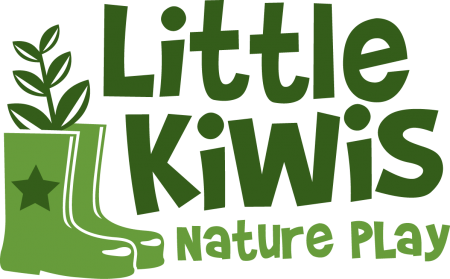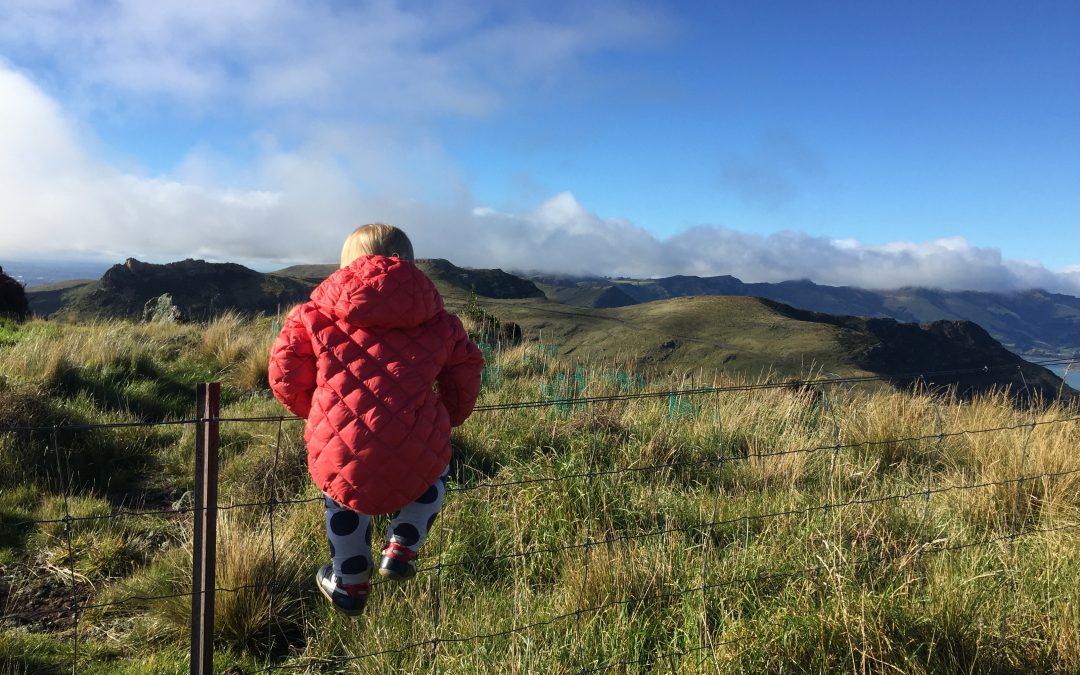At a meeting the other week a friend and I tabled an exciting idea we had. We suggested a pop up nature play space in the next school holidays – cool right? Well, the response wasn’t what either of us were expecting.
It wasn’t a response of excitement like ‘that’s awesome we need more of this unstructured play to help develop confident and resilient children – we love it!’
Instead it was a fear based response. ‘Will you be putting a fence around it? Will someone be there to manage it every day its operating? Will you have signs to disclose the risk?’
Initially I feel frustrated at these kinds of responses. Then I feel sad. Sad that as a society we are so worried about everything bad that might happen that we forget to think about all the positive outcomes that come from opportunities like a pop up nature play space.
Here in NZ you often hear people reminisce about the good old days. Sharing stories of how we use to go off exploring for the day and get back when the street lights came on, or how they played outside all day building forts, making dams in streams, biking the streets or going swimming down at the local water hole. That’s kiwi childhood nostalgia right there!
They talk about their childhoods with such pride and such excitement! All those wonderful lifelong memories they created when they were young helped shape the person they are today.
Fast forward a couple of decades and here’s what I see.
I see children whose gross motor skills are not as developed as previous generations of the same age, children spending more time in front of screens, children who don’t like getting muddy, children spending more time inside, not connecting with nature or understanding how important it is to our health and wellbeing.
It becomes obvious very fast which children don’t spend much time outdoors and which children are entertained rather than left to play.
What is our role?
I can empathise with adults who want to wrap children in cotton wool – especially when you read what goes on in the world BUT and it’s a big BUT….
What are we creating when we do that? What are we taking away from our children when we don’t allow then to have some of those experiential experiences? What effect will cotton wool wrapping have on children when they become adults, especially if much of their decision making, problem solving and risk assessment have been done for them? Where does it leave our children in this world?
If our childhoods were so free and wonderful, why are we not enabling our children to have similar experiences? Especially when we know how beneficial these kinds of experiences are.
Letting our children have experiences where they can challenge themselves, take risks, problem solve, interact with nature, make mistakes and learn through those experiences, in an outdoor environment, is vital if we want to avoid the cotton wool.
Here are 9 Benefits of Wild Play in a Cotton Wool World.
- Developing confidence
Having belief in oneself is such a gift. Nature is a great confidence builder as when they get to the top of the hill, or climb over that log they are building up their trust in their own ability with every step they take.
- Learn to manage risks
Having opportunities and experiences where children can identify risks, assess them and then respond to them helps children to understand how to make good decisions and to learn how to take control of situations. Proactive v reactive.
- Problem solving
Identifying issues, coming up with possible solutions, selecting options and testing them out then monitoring and evaluating are all vital steps in the problem-solving cycle. Being able to solve problems gives us confidence when making decisions in life and it is also linked to risk assessment.
- Trial and error
It is about experimenting and making decisions based on what we know. Making a mistake is a great thing as it teaches us that that is not how to do it and we need to think about it differently to solve the problem. Experiential learning is a term that supports trial and error.
- Develop motor skills
Playing in the wild you will find many things to climb, jump, roll, balance on. The difference with natural features compared to a playground is nature is unpredictable. In a playground situation, we know what to expect and our brain can sometimes turn onto auto pilot. In nature, we use our brain in a different way. Our brain must be alert the whole time as we don’t know where the next foot hold will be or how low we need to go to get under the next branch.
- Take responsibility
Being able to respond to situations in a way that helps us rather than hinders us. Learning how to take control in a situation rather than burying your head in the sand. Taking responsibility supports positive decision making.
- Creates resilience
When playing in nature children need to be able to adapt what they know to any given situation. Being flexible and able to adapt to change helps to give them the ability to recover or bounce back from tough situations that they may face in life.
- Social skills
Nature provides many opportunities to interact with others. This can be with people of the same age or older or younger. Social skills are essential and help prepare children for the transition into becoming a teenager and then onto adulthood. Learning how to cooperate, communicate and care for others around them.
- Respect for the natural environment
Our environment is what we depend on to live and breathe. Spending time in nature is also proven to improve our mental health and overall health and wellbeing. If we don’t experience nature, we won’t connect to it, we won’t care for it and it won’t care for us. Learning and understanding how the natural world works, how it helps our planet and us is essential to creating the next caretakers of our planet.
Celia Hogan


Love the nine benefits here Celia!! So true. I read something the other day that kids these days don’t get enough different types of movement to engage their balance senses (e.g. Rolling, going upside down, spinning etc) so they end up with poor balance, co-ordination and gross motor skills as you mentioned. There are lots of unexpected consequences of being over protective of your kids aren’t there!! And lots of benefits of letting them be free, as you have listed in your article. Here’s to raising confident, capable kids with lots of wild play!